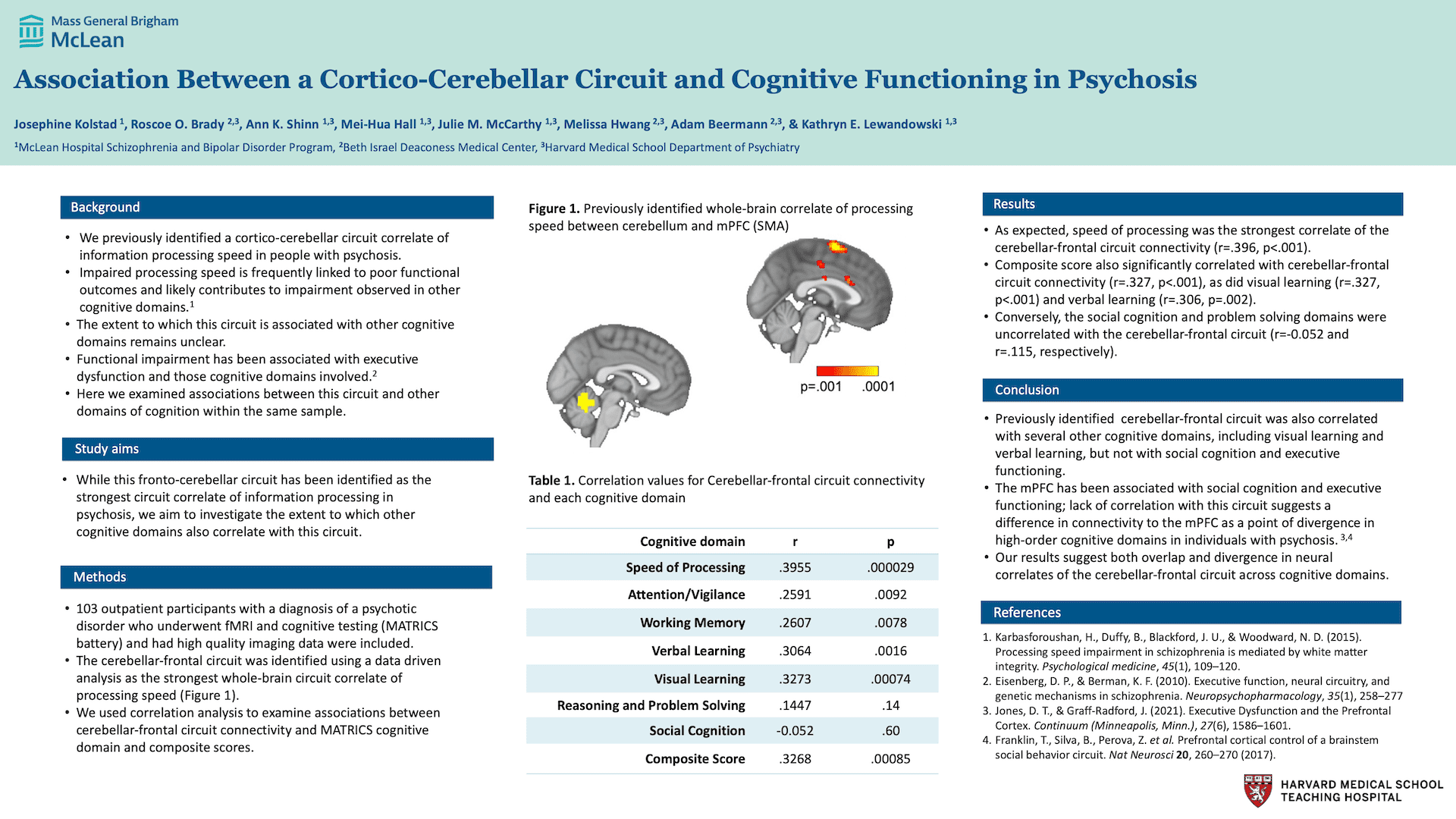Scientific Abstract
Background: We previously identified a cortico-cerebellar circuit corelate of information processing speed in people with psychosis. Impaired processing speed is linked to poor functional outcomes and likely contributes to impairment observed in other cognitive domains. The extent to which this circuit is associated with other cognitive domains remains unclear. Here we examined associations between this circuit and other domains of cognition within the same sample.
Methods: 103 outpatient participants with a diagnosis of a psychotic disorder who underwent fMRI and cognitive testing (MATRICS battery) and had high quality imaging data were included. We previously used a data-driven analysis which identified a cerebellar-frontal circuit that was the strongest whole-brain circuit correlate of processing speed. Here we examined the correlations between this cerebellar-frontal circuit connectivity with the MATRICS cognitive domain and composite scores.
Results: As expected, speed of processing was the strongest corelate (r=.396, p<.001) of the previously identified cerebellar-frontal processing speed circuit. Composite score also correlated with cerebellar-frontal circuit connectivity (r=.327, p<.001), as did visual learning (r=.327, p<.001) and verbal learning (r=.306, p=.002). Conversely, social cognition was uncorrelated with the cerebellar-frontal circuit (r=-0.052, p=.60), and problem solving was also uncorrelated (r=.115, p=.14).
Conclusions: A cerebellar-frontal circuit initially identified as a strong correlate of processing speed was also modestly correlated with several other cognitive domains, but was uncorrelated with social cognition and executive functioning, suggesting both overlap and divergence in neural correlates across cognitive domains. These results demonstrate that this is a circuit involved in some aspects of cognition but not all, and they begin to indicate where in the brain these cognitive domains share common neural pathways and where they diverge in individuals with psychotic disorders.
Search posters

